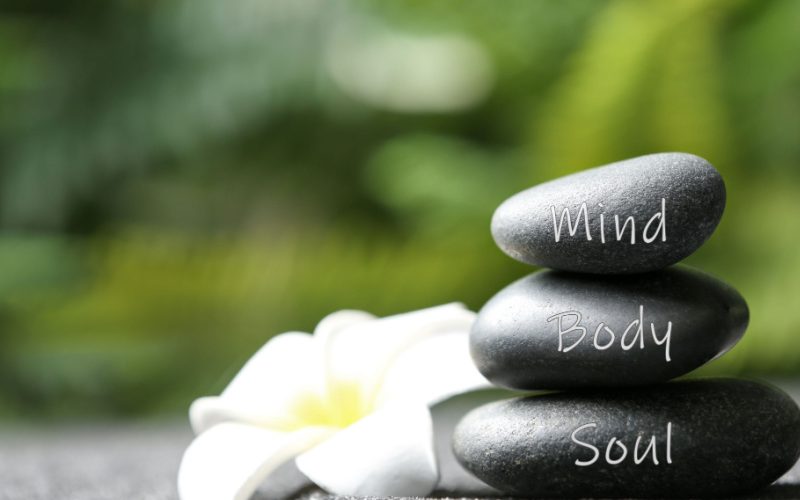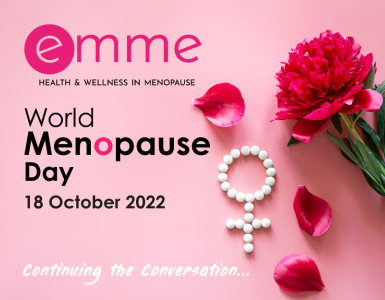Menopause is a natural part of a woman’s life – defined as the final menstrual period due to declining hormone levels usually occurring between 45 and 55 years of age
Some women experience a wide range of debilitating symptoms including insomnia, night sweats, joint pain, irritability, and hot flushes, that dramatically affect quality of life. Individual factors such as personal history, health and socio-economic status can considerably worsen menopausal experience.
There is no universal experience of menopause with a global difference in nature and severity of symptoms worldwide, but research suggests that culture and where you live may affect your menopause experience. In Eastern culture Menopause is considered a normal part of the ageing process, a new start of greater freedom, renewal, and growth. In contrast, western perspectives of menopause can be seen as a negative experience of aging and a time of life to dread.
It is becoming clear that the way we view, and approach menopause, can have a significant impact on experience
Women in their 50s hold their greatest wisdom and life experience, so isn’t it time to shift our mindset and re script living with menopause?
Modern day living can be stressful and lifestyle factors are very important in support of menopause. So, i’ve put together a few steps you can take to help your body and mind.
Mindful meditation
- Take up a daily mindful meditation practise to calm and nourish your nervous system
- Study a mindfulness course to learn to live mindfully – this can improve well-being and reduce stress.
Movement is medicine
- Exercise regularly
- Always listen to your body and be gentle with yourself. Some gentle forms of exercise include Pilates, walking, tai chi, qigong. It’s not just about the right amount of exercise, it’s also about how we move and tuning into the needs of your own body. This is achieved by exercising mindfully.
Diet
- Food has been used medicinally for thousands of years. During menopause nutritional intake is important.
- Try to eat a well-balanced diet with lots of fresh fruit vegetables and proteins. For hot flushes avoid spices foods, caffeine, sugar, and alcohol. For good sleep and well-being make sure you are eating oily fish and nuts ditch the junk and processed foods.
Chinese Dietary therapy
- Treating illness and maintaining health through dietary therapy is central to the practice of Chinese medicine. The closer we stay to the rhythms and cycles of nature, the healthier and more balanced we will be.
- An optimum diet takes the seasonal flow into account. In autumn, the season of letting go, we replace cold and raw summer foods with warm cooked foods, nourishing soups.
- During autumn/ winter, increased rest, moving inward and paying more attention to our internal lives. Living in harmony with the seasons we see that nature is slowing down, it is healthy for us to do the same
Massage
- Studies suggest that Massage can help with relaxation, reduce stress levels and improve sleep in menopausal women. Always see a qualified professional.
Nourish your yin
- Traditional Chinese medicine is based in the yin Yang theory.
- Normal healthy mental and physical conditions create a yin and Yang balance. When the Balance of yin and Yang are disturbed dis-ease will occur. Lowering oestrogen levels, stress, overwork, and poor diet all deplete yin energy. In traditional Chinese medicine theory menopause is an imbalance between yin and Yang.
- Carve out at least 30 minutes or more rest time during the day. It is very important to nourish yin through rest, sleep, and relaxation.
- The key to good health is directly related to the mind body and emotional health.
Consider Acupuncture
In clinic, as an Acupuncturist I regularly see debilitating menopausal symptoms that some women experience, including no sleep, hot flushes, night sweats and low mood, in additional life stress can worsen symptoms, but a a study in the British Medical journal states Acupuncture may ease menopausal symptoms.A danish study also found that 5 weeks of acupuncture reduced hot flushes, night sweats and disturbed sleep.
Most of my patients report a feeling of deep relaxation and improved sleep after an acupuncture session.
Choosing your acupuncturist
The British Acupuncture Council are The UK’s leading regulatory body of Acupuncturists. All members are listed on the register of the professional standards authority for Health and Social Care . It is advised to choose an acupuncture practitioner on an accredited register. To find an acupuncturist in your area, click here.
Colette Assor is a registered acupuncturist and well-being expert with 24 years experience. Colette is a fertility and hormonal health specialist based inFinchley, at Acupuncture works London and has completed a post graduate diploma in menopause Click here to visit Colette’s website.
Source: ivfbabble.com
















